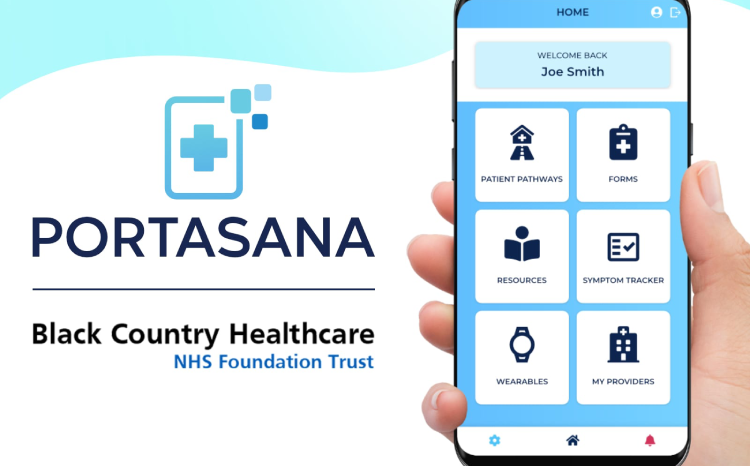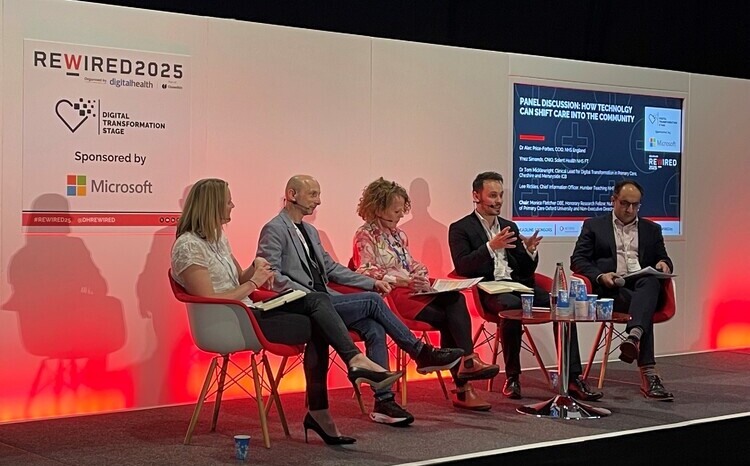Navigating the EPR landscape: Exploring alternative paths to digital maturity and success stories
- 10 April 2025

With the electronic patient record (EPR) mandate deadline approaching, and recent government announcements reshaping the healthcare landscape, the need for a smarter, more sustainable approach to digital transformation has never been more important, writes Rachael Fox, executive vice president at Altera Digital Health
Bringing the NHS back into the heart of the government has the potential to drive meaningful change, but to support true reform, it’s essential to maintain momentum in innovation and digital progress.
Now more than ever, collaboration and alignment will be key in ensuring the remaining 10% of NHS trusts can confidently embark on their digital journeys.
There has already been great progress in digital maturity across the NHS, and with the Darzi report outlining clear challenges, now is the time to implement strategies that accelerate transformation rather than introduce new barriers.
In this article, Fox shares her thoughts on taking an alternative approach to digital maturity, recognising the challenges being faced by NHS organisations, based on her own experiences working for the NHS.
Fox explores how a flexible, modular EPR approach can balance immediate transformation needs with long-term financial viability, highlighting real-world examples from Altera Digital Health’s clients.
What are modular and scalable EPR systems?
Modular and scalable EPR systems are designed to be implemented in phases, enabling trusts to start small and then expand their digital capabilities. Unlike monolithic EPR systems, modular and flexible systems like Altera’s offer a more agile and cost-effective approach.
How can a flexible approach help?
Altera’s proven integrated PAS and Sunrise™ EPR system is built on modular architecture, enabling trusts to choose and implement only the components they need, which can significantly reduce costs. Furthermore, it enables adaptability, ensuring that a trust’s EPR can evolve with changing clinical and administrative needs.
This flexibility helps trusts tailor the EPR to their unique requirements, driving usability and maximising clinical benefits.
What are the benefits of a phased implementation?
With Altera’s EPR, NHS trusts can take a phased approach to implementation. They can start with core functionalities that address their most urgent needs.
They have the option to start with clinical functionality that will quickly seek to improve the safety and reliability of patient care. They could then expand to other areas such as electronic prescribing and virtual wards as clinical groups across the organisation see the benefits it has delivered for their colleagues.
This phased approach spreads costs out over time and minimises disruption to healthcare services during the transition.
Examples of how this phased approach to implementation can deliver high levels of digital maturity and clinical buy-in can be seen at Maidstone and Tunbridge Wells NHS Trust and Gloucestershire Hospitals NHS Trust, both of which took this approach.
In addition, Worcestershire Acute Hospitals Trust have also embarked on this journey, as have Medway NHS Foundation Trust.
Supporting digital excellence at Maidstone and Tunbridge Wells NHS Trust
Adopting a phased approach to deployment, Maidstone and Tunbridge Wells NHS Trust are on their digital transformation journey with Altera integrated PAS and Sunrise EPR. The trust is one of the top-performing acute hospital trusts in the country and is regularly in the top five for A&E performance in England.
“What we have been able to achieve in a short space of time is extraordinary and is nothing short of transformational in terms of the impact to patient care.
“Our EPR is the spine of our digital transformation journey, and we’ve really hit the ground running to make it the best it can possibly be.” – Dr Alex Slack, chief clinical information officer, Maidstone and Tunbridge Wells.
Accelerating digital maturity: Worcestershire acute’s EPR transformation
In March 2023, Worcestershire Acute Hospitals NHS Trust began its digital transformation journey by implementing Altera’s integrated Sunrise administrative and clinicals EPR system.
Categorised as “Group 0” under the frontline digitisation programme, the trust successfully accelerated its digital maturity with a bespoke, highly configured EPR system. The phased implementation approach is ensuring alignment with clinical needs as well as minimising disruption for staff.
It has delivered rapid benefits to date.
“It was important for us to take a phased approach to the go-live.
“It enabled us to learn along the way to make the transition as smooth as possible, as for many staff this is their first time working digitally.
“As a result, we have very quickly been able to improve the baseline of our digital maturity, with minimal disruption to patient care.” – Stuart Cooper, EPR programme director at Worcestershire Acute Hospitals NHS Trust.
Medway NHS Foundation Trust’s rapid approach to digital transformation with a phased model
Medway NHS Foundation Trust has been partnered with Altera Digital Health since 2021, initially going live with Sunrise EPR in just five months-rapidly advancing the trust’s digital maturity.
Since then, the trust has gone live with electronic prescribing and medicines management (ePMA) and extended its use across the trust in a number of other areas. Most recently, order comms across all inpatient wards and emergency documentation in the paediatric department.
The trust credits this rapid transformation to its phased approach to EPR deployment.
Being able to incrementally roll out functionality has enabled the latest implementations to go smoothly and to greatly improve the trust’s level of digital maturity, with clinical staff embracing the technology and supporting effective change management.
“Altera Digital Health provided us with the flexibility to take a phased approach to roll out, ensuring we didn’t overwhelm the workforce.
“And throughout the deployment, clinical leads and digital champions were visible on the wards. This meant there were continued touchpoints between the clinical and programme teams, and clinicians could be assured they were using the system correctly and remaining compliant.” – Stacey Spence, EPR programme manager.
Is it possible to ensure long-term viability?
In addition to cost-effectiveness and flexibility, Altera’s approach ensures the long-term viability of EPR systems within NHS trusts.
As technology evolves and healthcare needs change, Altera’s modular EPR system can easily adapt and integrate new features and functionalities. This adaptability is crucial for sustaining the NHS’s digital infrastructure without the need for frequent and costly system overhauls.
The path towards a more sustainable NHS lies in innovative approaches to EPR implementation.
By adopting modular and scalable EPR systems like Altera’s, NHS trusts can embark on their digital transformation journeys in a phased and manageable way. This approach not only reduces upfront costs but also ensures that the NHS remains adaptable to changing healthcare needs in the long run.
Want to learn more?
Register for our upcoming webinar with Digital Health, ‘The evolving EPR landscape and the path to digital maturity’ on 21 May 2025 to learn more from the experiences of Altera clients to inform your own EPR journey.




